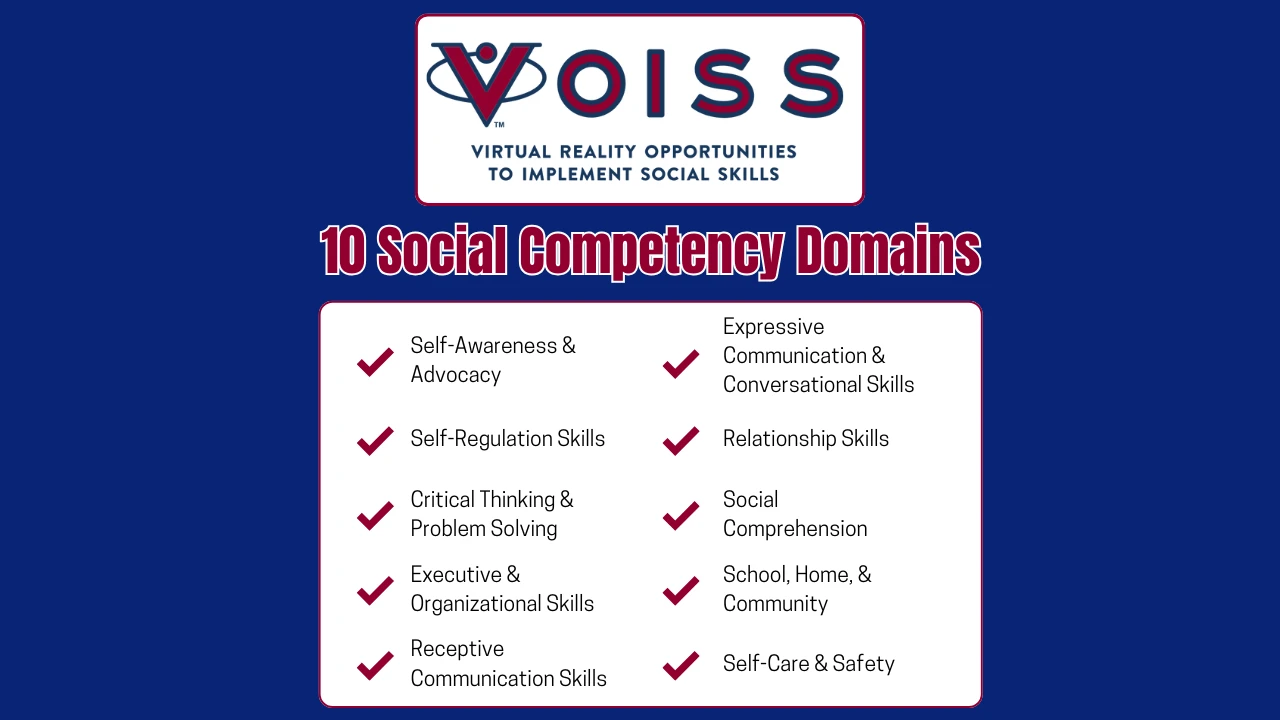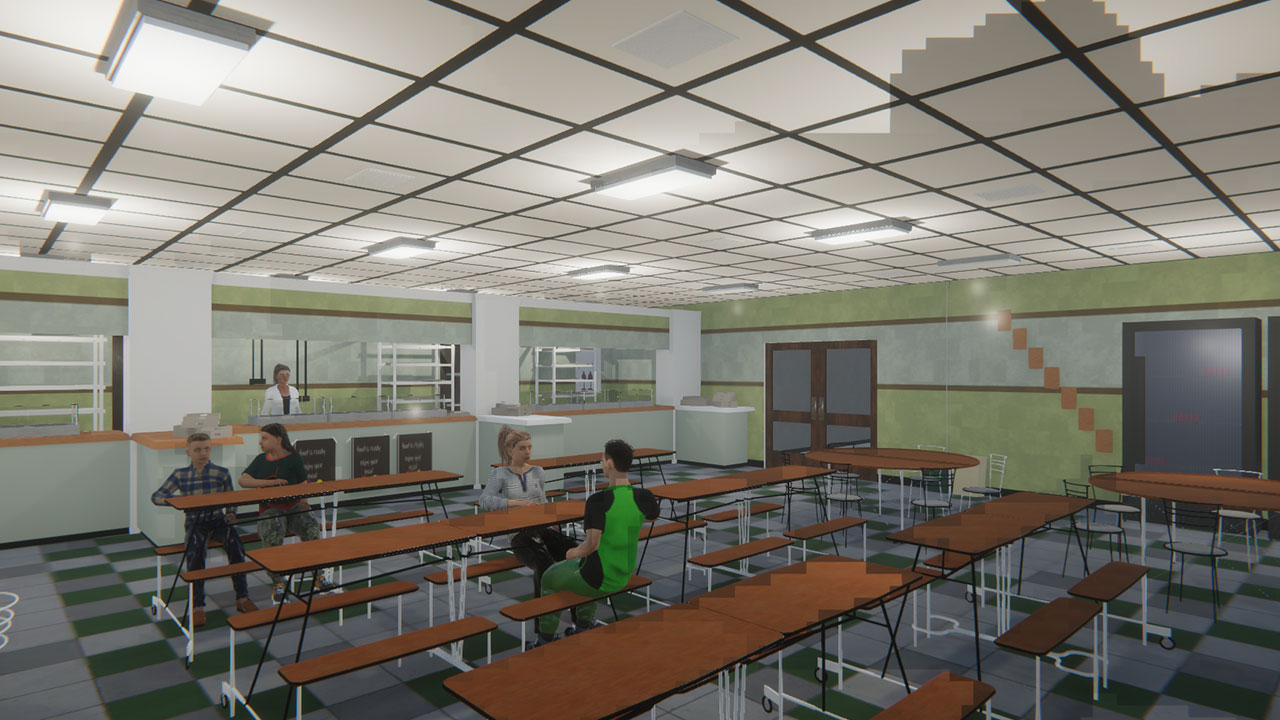But where do we go from there? What content can we turn to for high quality research backed interventions for our students with social skill deficits?
Let’s talk about Virtual Reality Opportunities to Implement Social Skills, or VOISS (as in students have a Voice) for short. Our innovative application boasts a library of 140 scenarios designed by social competency experts, structured across 10 Social Skill Domains, and addressing essential social skills required in today’s increasingly demanding classroom. For the student, it offers an interactive and engaging learning environment that is also a safe learning environment where learners can make mistakes without the negative consequences often in place within the middle school classroom. At the end of the day, these learning simulations offer a low stakes virtual playground for social-emotional learning. Yes, students often use the word fun when engaging in the VOISS interactive content.
VOISS ticks all the right boxes:
Personalized Learning
With its vast library of scenarios, VOISS allows educators to tailor the VR experience to each student’s individual needs. While covering ten domains, VOISS offers personalized learning paths for the student. Beginning with a social skill inventory, educators (and parents) are able to identify which of the domains (and accompanying social skill scenarios) would be appropriate for the student they are supporting. Likewise, each scenario monitors the user’s progress informing not only the student but also the educator/parent areas of success as well as areas of additional need.
The VOISS App covers ten domains of Social Competencies, targeting a wide variety of specific skills that might be deficits for your students. For example, if your students are struggling with Receptive Communication Skills, VOISS has scenarios related to knowing appropriate body orientation, understanding personal space, rules of touch, reading others interest in a topic; just to name a few..

The content you need is here. It is a research backed and teacher tested way to help your students work on a huge range of specific learning needs.
Real-Time Feedback
The application provides instant feedback and guidance, helping students learn from their mistakes and build confidence.
Sometimes our students make mistakes. Directions get mixed up, generalization does not happen on a skill, or sometimes students just need more practice. VOISS provides the user real time feedback to help the student and the teacher in the room with them have a higher likelihood of correcting anything they might need a little more work on.

Real-World Relevance
The scenarios in VOISS mirror real-life social situations, ensuring that students can apply their newly acquired skills in the real world.
Regardless if a student is working through a social situation on an Oculus headset, a Chromebook, or an iPad, creating a virtual environment they can relate to a real world one helps the student be immersed in the intervention they are receiving with VOISS. For example, the various scenarios are set in the school learning environment including the classroom, the hallway, the cafeteria, and a host of other environments common to today’s middle school.
Efficiency at its Best
VOISS seamlessly integrates into classroom routine, offering effective social skills training without disrupting the flow of learning.
Each social skill scenario is “bite sized” taking about 3-7 minutes to play through. The classroom teacher determines the number of scenarios for a given instructional day or week, students then sign in and work through the assigned scenario. The personalized pathway targets the specific learning need of the student, the data informs the student and their teacher of progress, and interactive simulation engages the student to persist with the learning task.
To get started, download VOISS today!
Carreon, A., Smith, S. J., Frey, B., Rowland, A., & Mosher, M. (2023). Comparing immersive VR and non-immersive VR on social skill acquisition for students in middle school with ASD. Journal of Research on Technology in Education, 56(5), 530–543. https://doi.org/10.1080/15391523.2023.2182851

